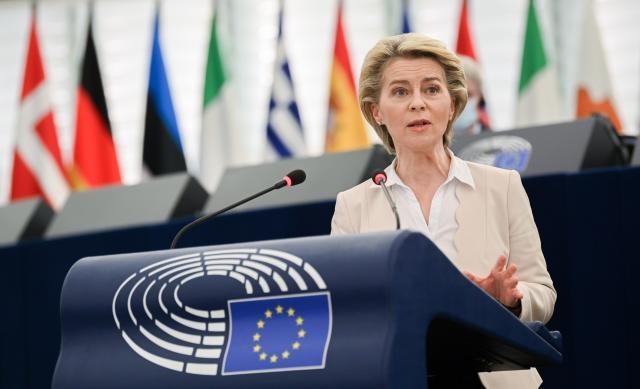Education: EU increases its commitment to Global Partnership for Education with a pledge of €700 million for 2021-2027
Ahead of the G7 Summit, President of the European Commission Ursula von der Leyen announced today that the European Union is pledging €700 million for the Global Partnership for Education (GPE) to help transform education systems for more than one billion girls and boys in up to 90 countries and territories.
European Commission President Ursula von der Leyen said: “I am proud we will be supporting the Global Partnership for Education with €700 million for the period 2021-2027 to help transform education systems around the world. Supporting education, in particular for girls and women is key to give the young generation good prospects in life.”
Commissioner for International Partnerships Jutta Urpilainen said: “Education has the power to transform lives and societies; it is the foundation of equality and a key to a better future for our youth. Acts must follow words. Today, with our increased commitment of €100 million per year to the GPE, we will ensure sustainable and long-term investment in education systems to address the education needs of millions of children and young people worldwide during the greatest learning disruption in history. The EU and Member States account for half of the global support to education and as Team Europe our contribution to the GPE will be a testimony that education must be at the heart of the recovery, with a particular attention to girls.”
COVID-19 has compounded the learning crisis
Even before the COVID-19 pandemic, there was a global learning crisis, with an estimated 617 million children between the ages of 6–14 worldwide unable to achieve minimum proficiency levels in reading, and adolescents failing to develop the skills needed for the 21st century.
COVID-19 has reversed much of recent progress in improving access to education and gender parity. Furthermore, it has aggravated the learning crisis with huge increases in inequalities, digital divide, and psychological and mental issues.
Girls’ education in particular has suffered enormously, with the crisis exacerbating the barriers and inequalities that girls face in low- and lower-middle-income countries. For example, with far less access to internet than boys (17% less globally) and to mobile technology (26% less), girls have been majorly disadvantaged to access remote learning opportunities.
The pandemic has also aggravated the gap in the funding required to achieve quality education for all by 2030. Reopening schools safely and effectively will require considerable additional financial and organisational efforts, including for accelerated programmes to catch up for lost learning.
EU commitment to global education
Through different funding instruments, the EU supports education in approximately 100 countries worldwide, and has been working with partner countries since the beginning of the crisis to minimise the impact of the pandemic on learning and the well-being of children, and to facilitate a safe return to school.
The EU has been working with partner countries to develop COVID-19 Response Plans and, where possible, to adapt education cooperation programmes to help governments ensure delivery of education services, distance learning, curriculum adaptation and support to teachers.
In the next financing period, Commissioner Urpilainen has decided to increase EU investments in education from 7% to at least 10% in the regions under her responsibility, with a focus on ensuring quality education, equality and equity, and on matching skills and jobs. This means in particular:
Investing in well-trained and motivated teachers that can equip children with the right mix of skills needed in the 21st century. At least 69 million new teachers will need to be recruited by 2030 for primary and secondary education, including more than 17 million in Africa.
Investing in equality, especially promoting girls’ education and leveraging the potential of digital innovations. Educating and empowering girls is a key aspect of the EU Gender Action Plan III, which aims to curb the rise of inequalities in the context of the pandemic, and accelerate progress on gender equality and women’s empowerment.
Investing in skills for the future, to prepare the professionals, business leaders and decision-makers of tomorrow for the green and the digital transformation.
The EU and its Member States will maximise their impact by continuing to work together as Team Europe to provide education opportunities for every child.

